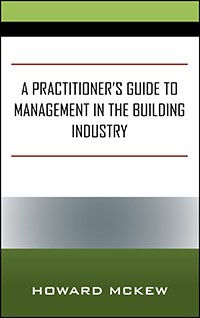For me, outlining my business plan has been a process that I have carried with me since my first management position as manager of HVAC engineering back in the mid-1970s. At that time, I sat down and outlined my first action plan (roadmap) for the coming year. After 25 years, I continue to apply this concept annually as I fine-tune and continue to learn more about management.
In planning your success, you don't need to be the CEO or president to document your game plan for 2004 and beyond. You could be a department head, group leader, or simply a person preparing to someday be ready for more responsibility. As they say, practice makes perfect and, if you are going to succeed in engineering and in business, you need to start your roadmap to success today.
Writing your plan doesn't have to follow any special requirements. You don't need to visit the famous Baker Library at the Harvard Business School to find out what the steps to a simple but effective game plan are. In many ways, it is just another version of goal setting where you target key achievements, itemize milestones to be met along the way, and put to paper a timeline to measure your performance. Personally, I prefer to publish this in a way that others know what my business plan is and where I stand. Frequently, I will get good feedback about this document, and that information will enhance my strategy.
Others struggle with the concept of publishing a business plan. For some, doing so is a big problem because it is always easier to simply highlight success when it happens and avoid questions about what happened when efforts miss the mark.
You could say ego gets in the way. I recall one person tell me his boss would never put anything in writing. I interpreted that comment to mean the boss didn't want to be held accountable for failure, only success. Tactics like that really don't fool anyone, and it is far more productive to raise everyone's awareness about how hard it is to succeed. Engineering and management, over the long haul, are always a struggle, but with a roadmap, the trip can be encouraging as milestones are targeted and reached along the way.
So what kind of professional business plan should a lead engineer put-to-writing? How about the following:
- Be proficient in writing detailed project proposals (listing the milestones/tasks such as scope, deliverables, etc.);
- Complete projects on time and within budget (itemizing tasks such as kickoff meeting, number of drawings, etc.);
- Maintain accounts receivable to within 45 days of payment (tracking monthly success);
- Maintain repeat business with 80% of your current clients (itemizing how to maintain clients);
- Establish business with one new client in each quarter of the year (learning how to be a "rainmaker"); and
- Mentor your replacement over the next five years (using a goal-setting format).
With each strategic plan comes the tactical part, which is to itemize milestones to hit within a specific timeline so that you know you are on target with your personal/professional business plan.
For group leaders, division leaders, vice presidents, presidents, and CEO's, they too should have similar strategic (big picture goals) and tactical plans that focus on sales, revenues, accounts receivable, client maintenance, and new business opportunities. Other enhancements relative to market share and name recognition are also needed, as well as a look at what the firm should be doing to compete in the years to come and how the business should adjust to changes in technology, competition, the economy, etc.
I believe an important byproduct of putting your plan on paper and monitoring and reporting on your progress is that you get to see where you are each month as the financials come in and you assess and update each business target. When you fall behind on a project, at least this document will help reinforce that you are still on target and that you just need to catch up.
The alternative is not writing a business plan. With this scenario, many find that the end of the year can come quickly and reality speaks for itself. While no one plans to fail, many fail to plan. For those who don't believe in writing a business plan, "smoke and mirrors" really won't help them as reality arrives on paper with the end-of-the-year financials showing they missed their mark again.ES



